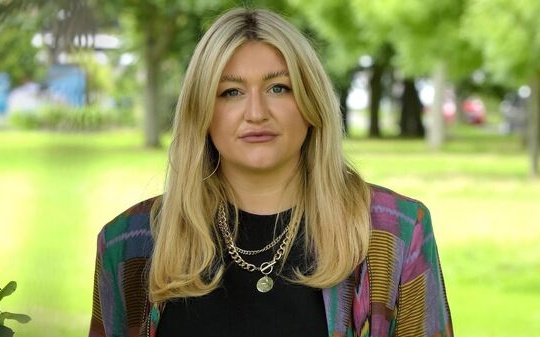Former journalist Aoife Moore: “I have had people threaten to skin me alive” (Moya Nolan)
A Dublin-based health and lifestyle micro-influencer, once prominent on social media, laments, “I was trolled not only by men but also women. I was told my body type should be banned from wearing shorts.”
Aoife Moore, a former journalist with the Irish Examiner, recounts, “I received a barrage of hate messages every single day ranging from death to rape threats.” She eventually deleted her Twitter account and had to seek medical help to cope with her deteriorating mental health.
The experience of these two women, enduring harassment and then limiting their online presence, is shared by many female writers in Ireland. Women are targeted far more viciously than male counterparts.
Online violence against women journalists is a reality from the US, UK, Canada, Australia, and South Korea to less economically developed countries such as Ghana, Pakistan, Kenya, and Yemen. And even in countries with progressive policies for women, the online neighborhood doesn’t necessarily reflect this advance.
In the past decade, Ireland has legalized same-sex marriage and abortion. Free menstrual hygiene products are being provided by educational institutions. Women now longer have to cross borders “illegally” for contraceptives. A Committee on Gender Equality has been established.
However, while women are widely represented in Irish culture and politics, these developments do not inherently signify that journalism is a safer space for them online.
A young Irish journalist, who asks to remain anonymous, says, “I get a lot of backlash. Anti-journalism and political rhetoric — I get at least 5-6 unsolicited messages every week on Twitter. Women are the easiest target.”
She has no other option but to block these accounts, an option of last resort given the notion of “victory” taken away by harassers.
Flor MacCarthy, a political journalist with Oireachtas TV asserts, “it does not bother me and I don’t respond to trolls. However, the problem is profound and grave.”
There is minimal available data on policies of social media companies over abusive and hateful content; support systems for users being targeted; and whether brutalizing posts and accounts are removed.
However, it is evident that the pervasive online abuse directed at women is not just gender-based targeting. It is an endemic issue of power and societal hierarchies. Even in nations that have taken notable strides towards gender equality, the landscape of online journalism remains perilous for women.
Aoife Moore, the former journalist, reflects:
I have had people threaten to skin me alive. It is a mob mentality. Despite knowing it is wrong, people partake in it anyway.

